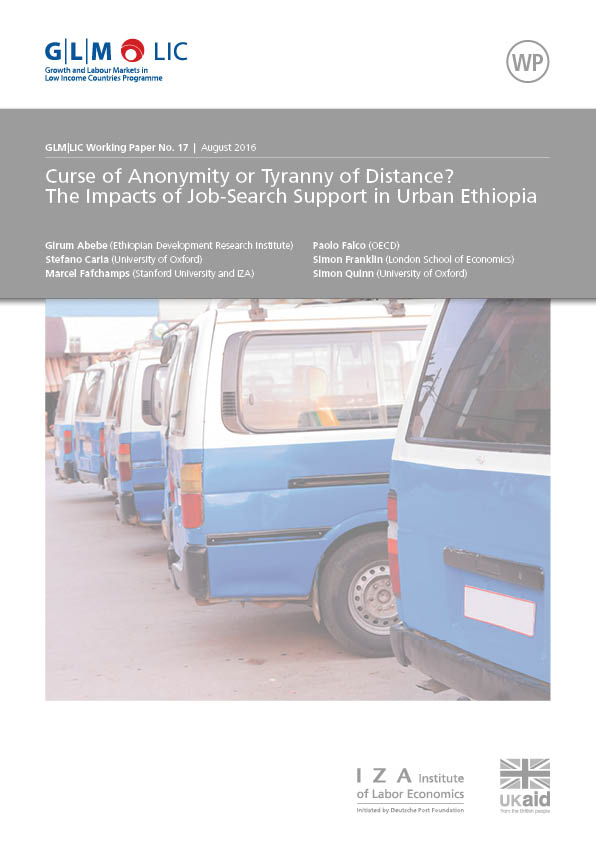We conduct a randomised evaluation of two job-search support programmes for urban youth in Ethiopia. One group of treated respondents receives a subsidy to cover the transport costs of job search. Another group participates in a job application workshop where their skills are certified and they are given orientation on how to make effective job applications. The two interventions are designed to lower spatial and informational barriers to employment. We find that both treatments significantly improve the quality of jobs that young jobseekers obtain. Impacts are concentrated among women and the least educated. Using rich high-frequency data from a phone survey, we are able to explore the mechanisms underlying the results; we show that while the transport subsidy increases both the intensity and the efficacy of job search, the job application workshop mainly operates through an increase in search efficacy. Both interventions mitigate the adverse effects of spatial constraints on employment outcomes, and the job application workshop alleviates informational asymmetries by helping workers to signal their ability.
